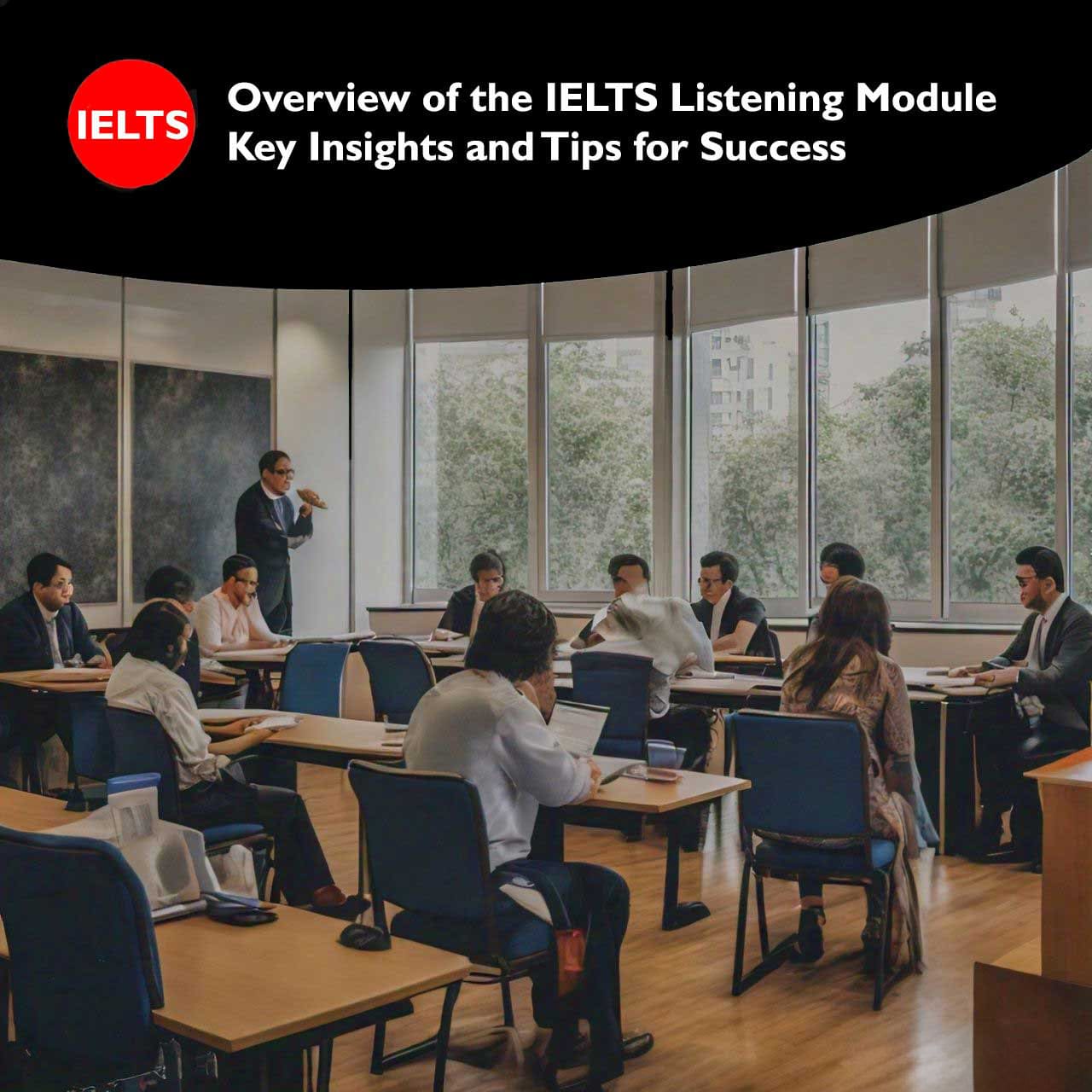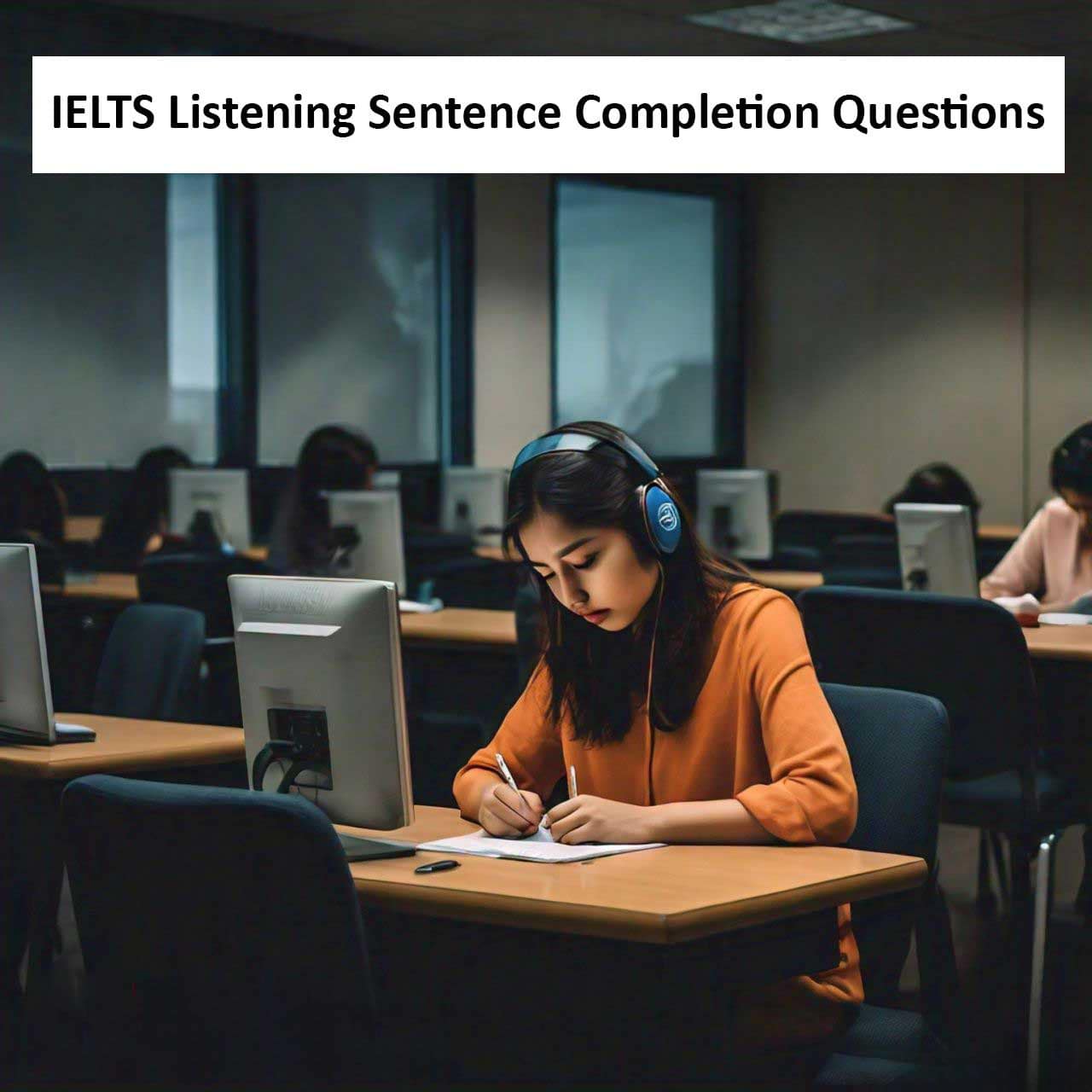The IELTS Listening module is a crucial component of the IELTS exam, designed to assess your ability to understand spoken English in various contexts. This module is the same for both the Academic and General Training versions of the IELTS test. In this blog post, we’ll provide an in-depth overview of the IELTS Listening module, its structure, types of questions, scoring, and essential tips to help you excel.
Table of Contents
Structure of the IELTS Listening Module
The IELTS Listening module lasts for approximately 30 minutes and is divided into four sections, each with a distinct focus. You’ll listen to a variety of recordings, including conversations and monologues, and answer 40 questions in total.
Section Breakdown
1. Section 1: Social Interaction
– This section involves a conversation between two people in a social or everyday context, such as making a booking or an inquiry.
2. Section 2: Monologue
– In this section, you’ll listen to a monologue set in an everyday social context, such as a speech about local facilities or a guided tour.
3. Section 3: Academic Discussion
– This section features a conversation among up to four people in an academic or training context, such as a discussion between a tutor and students about an assignment.
4. Section 4: Academic Lecture
– The final section is a monologue on an academic subject, resembling a university lecture.
Types of Questions
The Listening module includes various question types to assess different listening skills:
– Multiple Choice: Select the correct answer from several options.
– Matching: Match a list of items to a set of options.
– Plan/Map/Diagram Labeling: Label a plan, map, or diagram with information from the recording.
– Form/Note/Table/Flow-Chart/Summary Completion: Fill in the gaps in the given information based on the recording.
– Sentence Completion: Complete sentences using information from the recording.
– Short Answer Questions: Answer questions with a few words.
Scoring System
Each correct answer in the Listening module earns you one mark, and the total number of correct answers out of 40 determines your band score. Scores are reported in whole and half bands, ranging from 0 to 9. The table below provides a general guide to how raw scores convert to band scores:
| Raw Score | Band Score |
|---|---|
| 39-40 | 9 |
| 37-38 | 8.5 |
| 35-36 | 8 |
| 32-34 | 7.5 |
| 30-31 | 7 |
| 26-29 | 6.5 |
| 23-25 | 6 |
| 18-22 | 5.5 |
| 16-17 | 5 |
| 13-15 | 4.5 |
| 10-12 | 4 |
| 7-9 | 3.5 |
| 5-6 | 3 |
| 3-4 | 2.5 |
| 2 | 2 |
| 1 | 1 |
Essential Tips for Success
1. Familiarize Yourself with the Format
Understand the structure and types of questions in the Listening module. Practice with sample tests to get used to the format and timing.
2. Enhance Your Listening Skills
Listen to a variety of English audio materials, such as podcasts, news reports, and lectures. Focus on different accents and speech speeds.
3. Practice Active Listening
While practicing, take notes and try to summarize what you hear. This will help you grasp key points and details more effectively.
4. Use Predictive Skills
Read the questions before listening to the recordings. Predict the type of information you need to listen for, such as names, dates, or specific details.
5. Manage Your Time Wisely
The recordings are played only once, so it’s essential to stay focused and follow along with the questions. Allocate your time to each question appropriately and avoid spending too much time on any single question.
6. Pay Attention to Instructions
Instructions often specify how many words you can use in your answers. Ensure you adhere to these limits to avoid losing marks.
7. Check Your Answers
If you have time, review your answers and ensure they are clear and legible. Correct any mistakes before submitting your answer sheet.
Conclusion
The IELTS Listening module is a vital part of the IELTS exam, assessing your ability to understand spoken English in various contexts. By understanding the structure, practicing regularly, and employing effective listening strategies, you can significantly enhance your performance. Remember, practice and preparation are key to achieving a high band score. Good luck with your IELTS Listening preparation!



